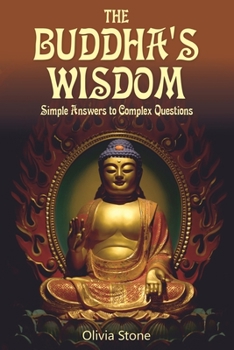The Buddha's Wisdom: Simple Answers to Complex Questions
Select Format
Select Condition 
Book Overview
What is so unique about the teaching of Buddha? How effective is the teaching to the personal growth, success and freedom of individual? Can the teaching of Buddha be applied in today's contemporary world? Humanity faces many challenges as the day unfolds; however, men and women who attained the impossible have done so by adopting and deploying the most appropriate wisdom. What you are about to encounter in this book are loads of rare wisdom shared by the founder of Buddhism - Siddhartha Gautama. The wisdom covers every area of life, including behavior, business, health, liberation and prosperity. This book is perfect for you if you are looking forward to learning more about Siddhartha Gautama, his teachings and his contributions to development. Buddha's teaching on mercy, justice, self-awareness, behavior, diligence, work, wealth and so on will not only equip you with the capacity to live an exceptional life - but will also empower you and society to live a productive life in tranquility. Read on and be imparted with wisdom!
Format:Paperback
Language:English
ISBN:B0BB5MX4FG
ISBN13:9798847247252
Release Date:August 2022
Publisher:Independently Published
Length:174 Pages
Weight:0.53 lbs.
Dimensions:0.4" x 6.0" x 9.0"
Customer Reviews
5 customer ratings | 5 reviews
There are currently no reviews. Be the first to review this work.





















